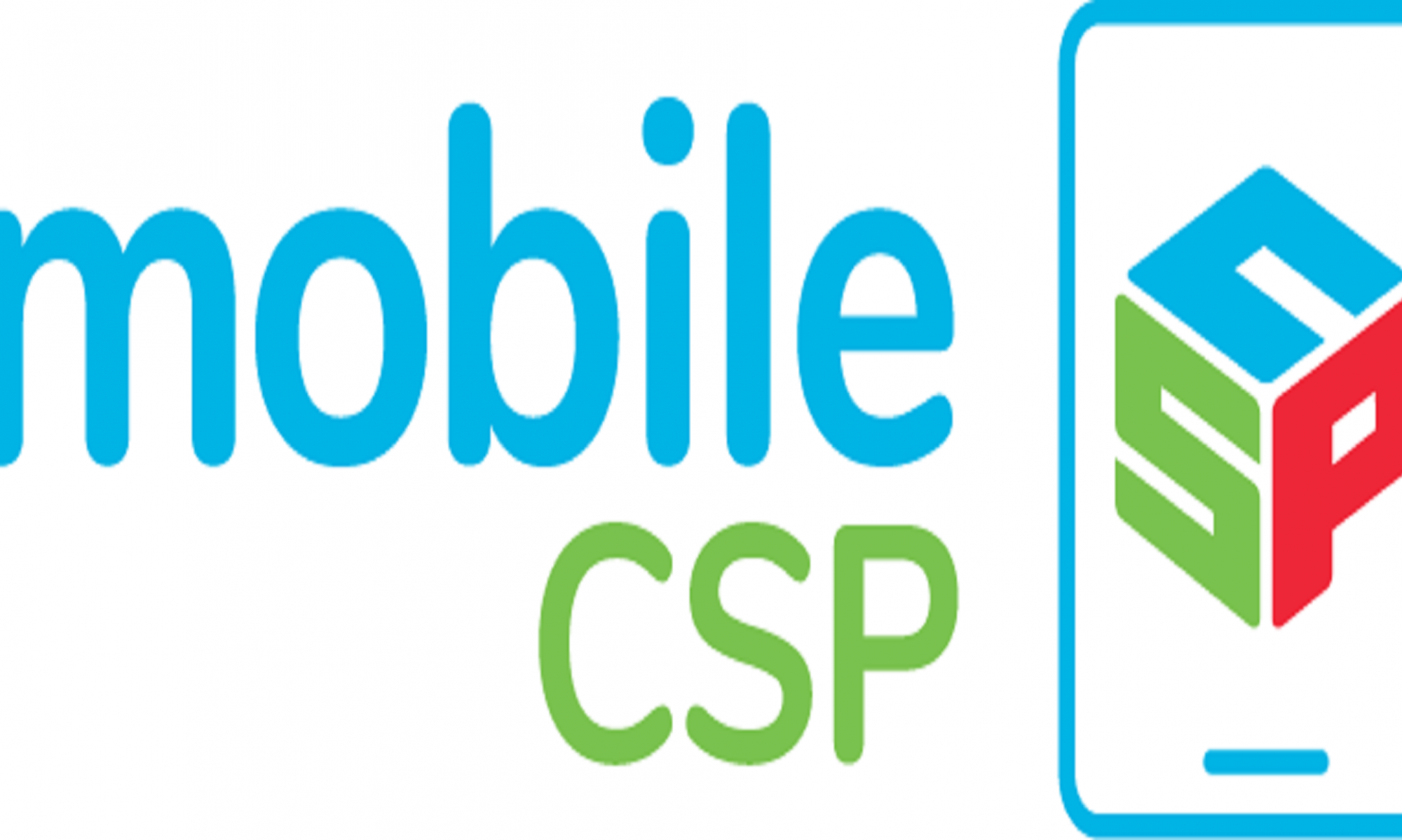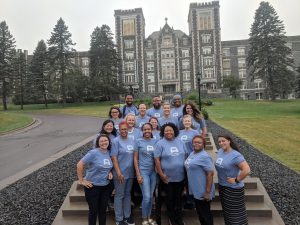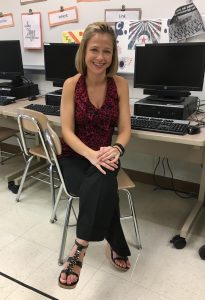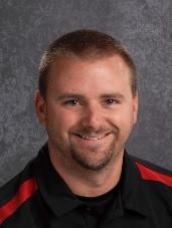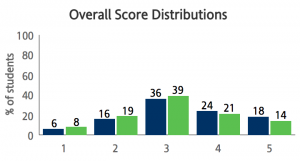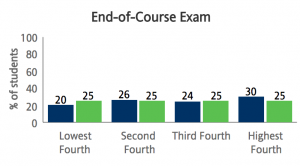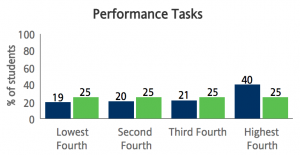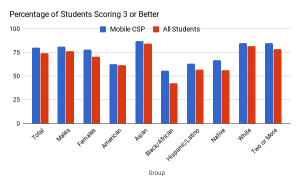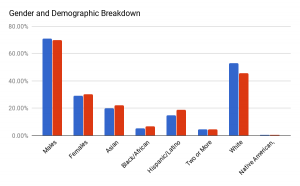Congratulations Mobile CSP teachers and students!
The official results are in and Mobile CSP students performed very well on the 2018 AP CSP exam. Out of 73,732 students who took the 2018 exam, 4,031 (5.4%) were part of a course using the Mobile CSP syllabus and 76.2% of Mobile CSP students passed with a grade of 3, 4, or 5, compared to 68.9% for all students. In the following chart Mobile CSP students are shown in blue and are compared to the performance of all students. 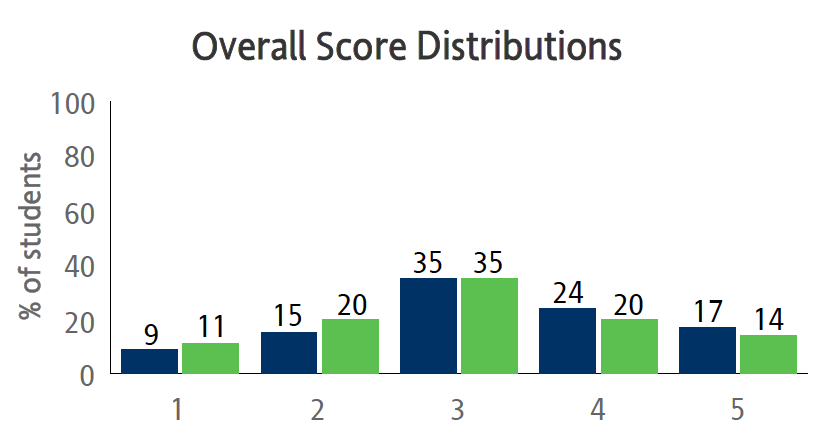
For the multiple choice part of the exam, the College Board divides all students evenly into quartiles and then calculates the percentage of our students who fall into each quartile. As this chart shows, 32% of Mobile CSP students scored in the top quartile, while only 21% or our students scored in the bottom quartile. These are good results.
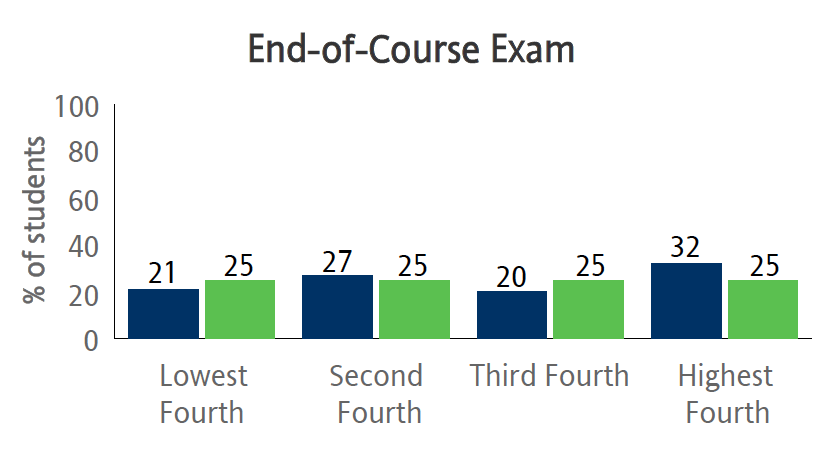
On the performance task portions of the exam, Mobile CSP students did even better, with 33% of our students scoring in the top quartile and only 17% in the bottom quartile. 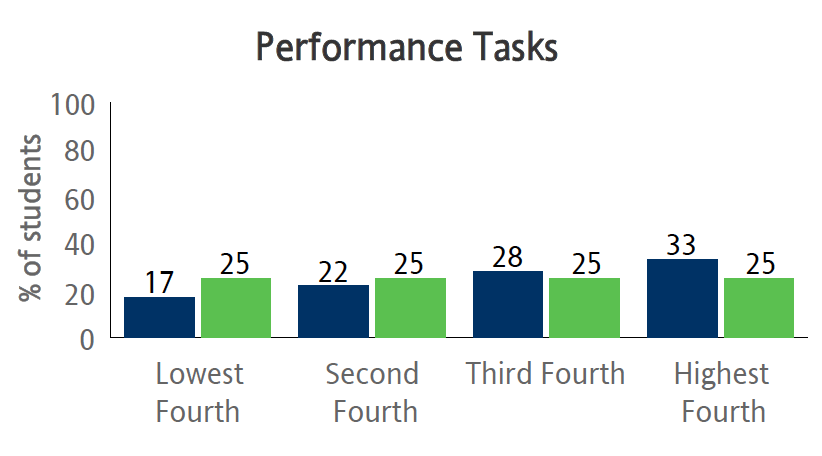
Performance by Content Area
The College Board report (link below) provides a breakdown of student performance by content area (e.g., Algorithms, Abstraction, Programming, etc.). In every one of the 15 content areas reported for the multiple choice exam and the 5 areas reported for the performance tasks, Mobile CSP students performed at or higher than the global average. For example, in the area of Abstraction 1,475 (36.6%) Mobile CSP students scored in the top quartile compared to all students. And in the Create Task Apply Algorithms area 1,609 (39.9%) scored in the top quartile. These are very strong results.
Performance by Demographic Group
The College Board has not yet given us a demographic breakdown of the Mobile CSP cohort. We will update this summary when we receive those data.
For more details, here’s a link to the original report from the College Board.
Congratulations to all our students and teachers!
